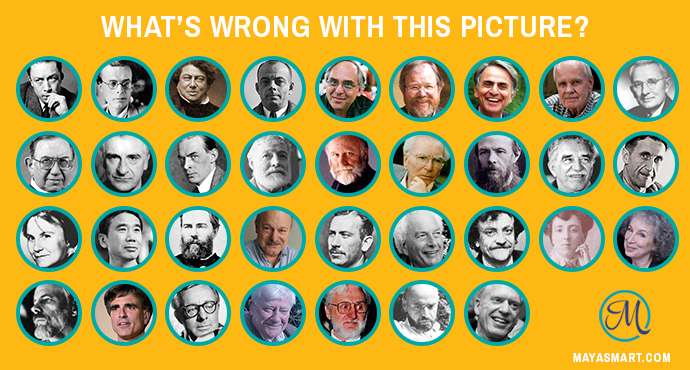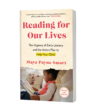Instead, I found the same old, same old: an overwhelmingly white and male list. It featured just three women authors — Harper Lee, Margaret Atwoood, L.M. Montgomery. Haruki Murakami and Alexandre Dumas the lone people of color.
Irritated, I replied: “I hope this is a first draft and you plan to do some soul searching about the bias you just put on blast.” I wrongly assumed that the whitewashed list, like so many others every year, was a sole author’s creation. Turns out, the real origin was more interesting. Time reprinted a Business Insider article summarizing a Reddit thread that asked, “What is a book that everyone needs to read at least once in their life?”
A. Reddit. Thread.
It’s bad enough that mainstream media reporters consistently develop and deliver whitewashed must-read lists on their own. (Witness this New York Times summer reading list.) But promoting third-party roundups of content produced on the same site as CoonTown feels like a new low. (Reddit only recently shut down some of its racist communities earlier this month.)
This case highlights the intractability of bringing diverse authors to prominence. It’s not enough to persuade influential book reviewers to integrate their lists, hoping the spirit of inclusion trickles down to everyday readers — not when major publications promote user-generated lists that are just as pale. Promoting diverse authors is a top-down, bottom-up, round-and-round battle fought in short-range, hand-to-hand.
Forgive the war analogies, but the erasure of legions of authors feels like a kind of violence. Just today I received an all-white summer reading list from the graduate school I attended. Surely, the monochromatic roundup contradicts the university’s self-proclaimed efforts “to build a truly diverse, inclusive, and welcoming community for all.”
To be clear, my issue is not with the wonderful authors who do appear on recommendation lists with regularity. Rather, I reject the customs and unconsciousness that callously promote those authors while systematically excluding worthy voices of a different hue.
In the face of such persistent slights, a certain aggressiveness is required to give diverse literary voices a fighting chance. Only when enlightened readers produce a critical mass of tweets, essays and general outcry will reading lists more fully reflect our incredibly varied and colorful world. That’s why I love Book Riot posts like this, this and this.
Vigilant community oversight and publicly calling offenders to account are promising tactics. I’ve seen an uptick in the number of widely read articles calling attention to the perils of whites-only book lists. When well-respected publications send their blanched lists of reading recommendations out into the world, enlightened readers are quick to call them out and offer more diverse reading options. Take Roxane Gay’s classic response, The Worst Kind of Groundhog Day: Let’s Talk (Again) About Diversity in Publishing. (I would expect the New York Times writer recognized for reaching “peak caucasity” to hesitate before delivering another ivory roundup.)
But it’s not enough to nag publishing industry players into adding some token color to the palette. I would also like to see some guilt, reconciliation and penance on their part. Recompense would look like joining us here in the real world and recognizing our humanity as readers, authors, characters. It would look like permanently relieving mindful readers of the duty of pointing out over and over again that people of a variety of ethnicities and experiences exist and matter. As Natalya Sylvester put it in a piece about tired summer reading lists: “Until we don’t have to point out diversity, until the word itself becomes more accurately replaced with ‘reality,’ it’ll be déjà vu over and over again.”
It will take some time for diverse authors to bubble up in online popularity contests like the Reddit thread, but personally curated lists by pros and novices alike can transform in no time if pressure is applied. Are you in?
This was originally published on Book Riot. Click here to read my pick for a book everyone should read.


